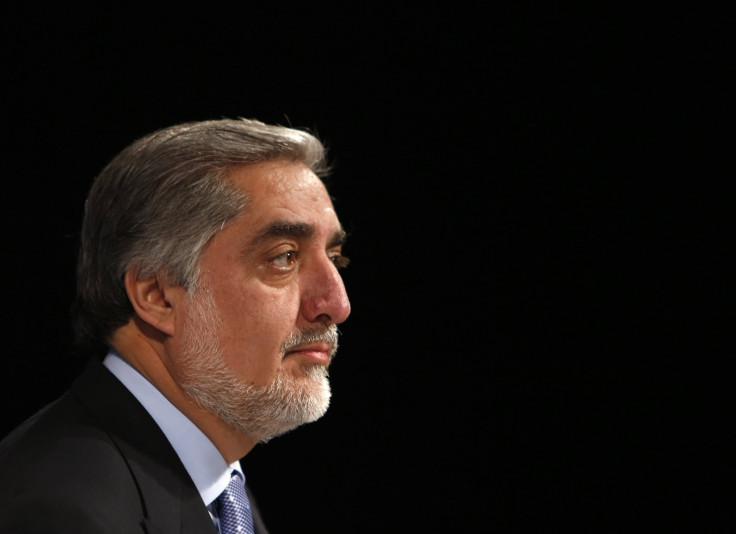Abdullah Widens Lead In Afghan Presidential Vote

(Reuters) - Former foreign minister Abdullah Abdullah's lead in the Afghan presidential race has widened, the latest official tally of votes released on Sunday showed, although half of the votes have yet to be counted. Afghanistan's Independent Election Commission said initial results based on almost 50 percent of the vote out of the total 34 provinces showed Abdullah in the lead with 44.4 percent, followed by ex-world bank official Ashraf Ghani with 33.2 percent of the votes it said were not fraudulent.
"The lead we were expecting, it didn't come as a surprise, but perhaps we were expecting a bigger lead," Abdullah told Reuters in an interview at his home in Kabul. "We are still hoping the elections will be completed in the first round." To win, a candidate must secure more than 50 percent of valid ballots. Failing that, the top two candidates go into a run-off. Final results are due on May 14, and a run-off, if needed, will take place in late May.
A run-off is seen as a risky proposition in Afghanistan, given security concerns, the prospect of a low turnout and the cost - the bill for the first round was put at more than $100 million. But Abdullah dismissed the idea of deal-making to avoid another round of voting. "The idea of coalition building in order to avoid a second round is not on the agenda, at least we are not intending to enter that track," he said. "The people of Afghanistan deserve to have a clear outcome." He said he had spoken with Zalmay Rassoul, running in third place with nearly 11 percent of the vote, as the likelihood rises of them joining forces to defeat Ghani in a second round. Hamid Karzai was constitutionally bound to step down as president after more than 12 years in power, at a time when Afghanistan readies to stand on its own feet as most Western troops prepare to leave the country by the end of the year.
Western powers are watching the process intently after a messy presidential election in 2009 resulted in allegations of mass fraud and ballot stuffing. Foreign donors, who are hesitant about bankrolling the Afghan government after the bulk of NATO troops leaves, will also closely scrutinize the composition of the country's future government to decide if they can work with the new team.
FRAUD ON THE RISE
Afghanistan's allies hailed the first round on April 5 a success because of the high number of participants and the fact that Taliban militants didn't stage any big attacks on polling day. All leave for hundreds of thousands of police and soldiers was cancelled as the government made security a top priority. Official estimates put the turnout at 60 percent of 12 million eligible voters. But as many as 18 million voter cards are in circulation. Evidence of widespread fraud has taken some of the gloss off the third presidential election since U.S.-led forces drove the Taliban from power in 2001. Over a million votes are likely to be thrown out, and election officials have also warned that the high incidence of fraud could delay the entire election process.
"High ranking officials all the way from governors to MPs were involved in ballot stuffing," Gul Agha Sherzai, one of the nine candidates and former governor of Kandahar, told Reuters. "District commanders, police officials, everybody was involved - the previous election, nothing like this happened."
In Herat province alone, the head of provincial election complaints commission told Reuters on Sunday that 100,000 votes from 27 polling stations have been invalidated. More incidents of serious fraud have been reported in this month's vote than in the previous ballot of 2009, threatening to undermine the legitimacy of an election meant to usher in Afghanistan's first democratic transfer of power. Abdullah conceded that fraud was a worry, but said the vote was much cleaner than the 2009 ballot.
A trained ophthalmologist turned anti-Soviet resistance fighter, Abdullah quit the last election after complaining the poll was marred by massive ballot-box stuffing. He had been due to contest a second-round run-off against Karzai. While Sunday's count delivered good news for Abdullah, Ghani will be disappointed. A week earlier Abdullah had 41.9 percent of the vote and Ghani had 37.6 percent.
(Article courtesy of Reuters. Additional Reporting by Mirwais Harooni and Hamid Shalizi; Writing by Jeremy Laurence, editing by Rosalind Russell)
© Copyright IBTimes 2024. All rights reserved.




















